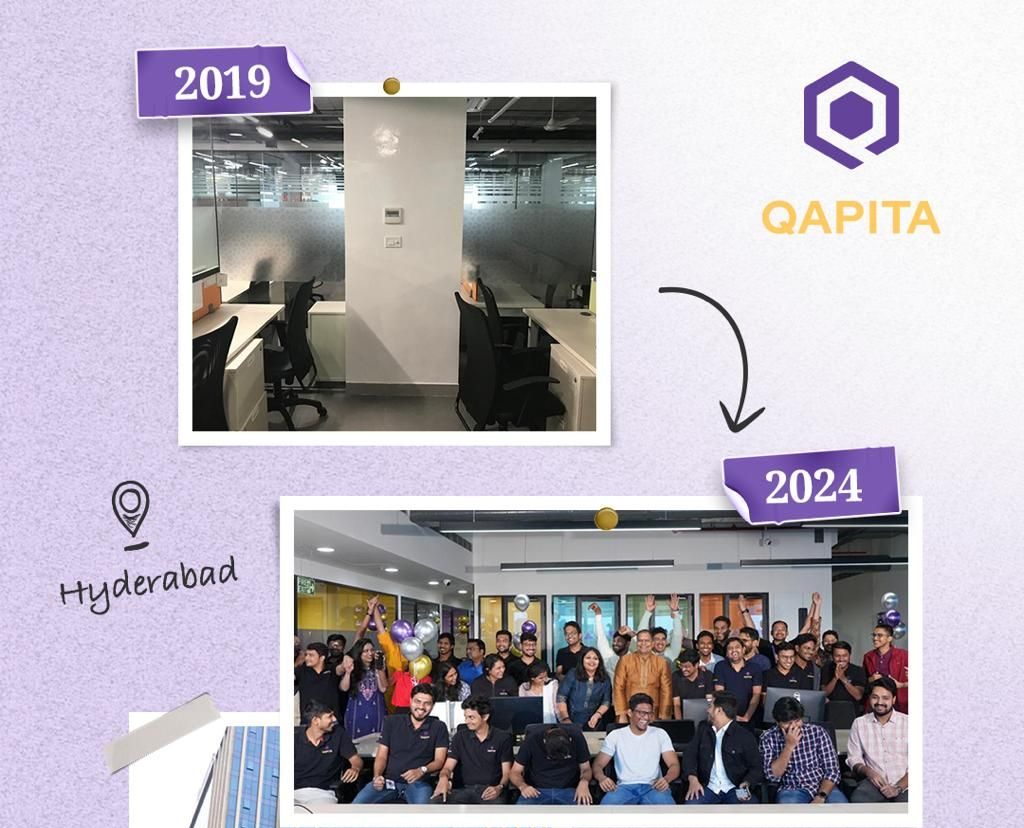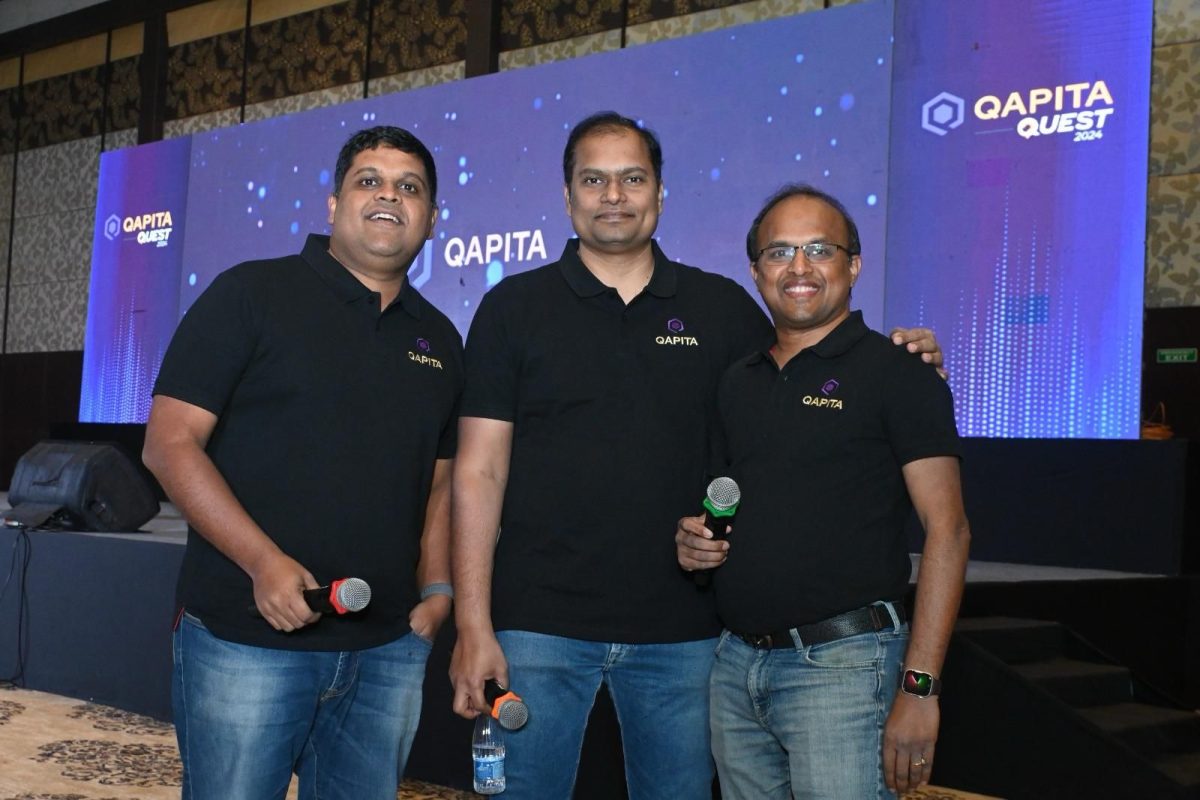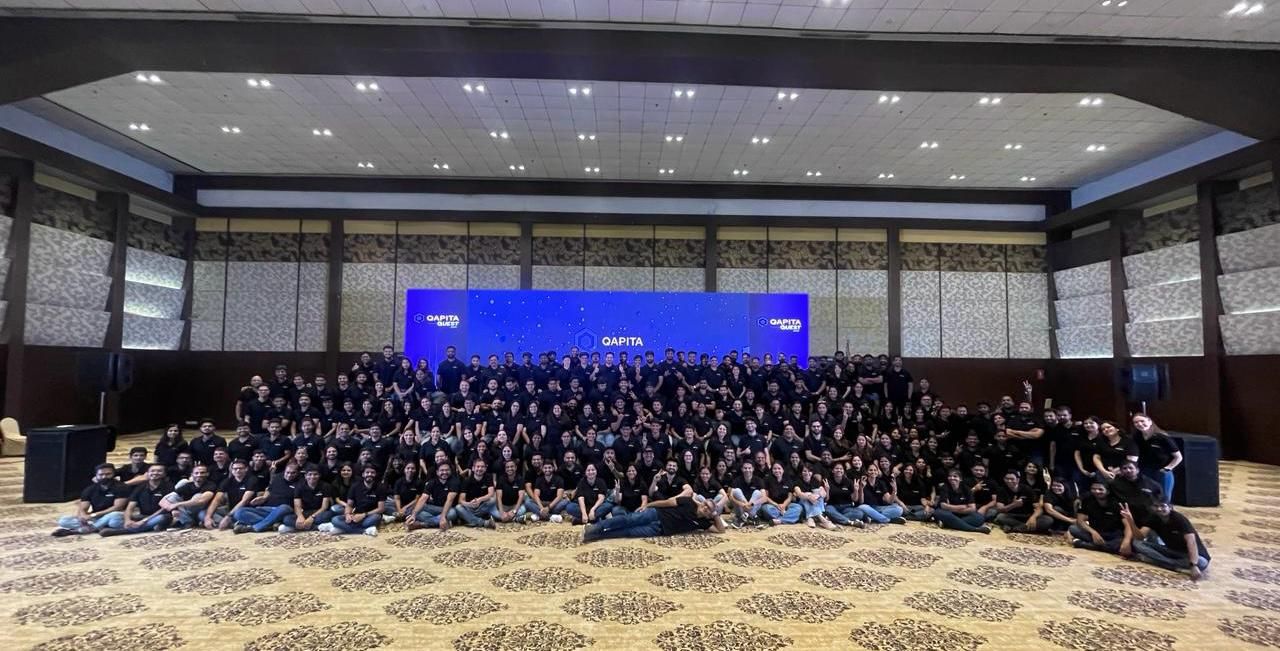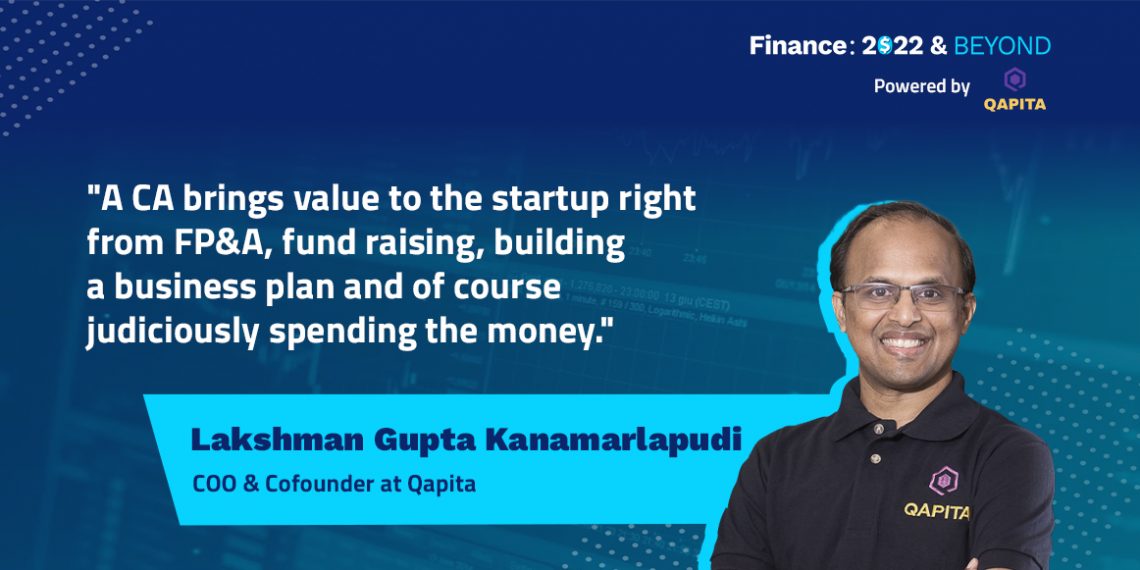After spending two decades in media and finance with stints in big companies like Hindustan Unilever Limited, Discovery Channel, and Tata Communications, Lakshman Gupta Kanamarlapudi, started Qapita when he was in his early 40s.
In our Finance: 2022 and Beyond series powered by Qapita – CapTable and ESOP Management Platform, Lakshman talks about moving away from the norm and starting up in his 40s, why CAs make great co-founders, how to handle investors after raising funds and how senior professionals are moving to startups thanks to ESOPS!
A Chartered Accountant and a Cost Accountant, Lakshman says you don’t need to be of a ‘certain age’ to start up.
Some interesting insights from the conversation:
Q. You began your entrepreneurial journey mid-career; do you think other senior professionals should also take the leap? What do you think are the benefits of starting up as a senior professional?
A. The media tends to celebrate mostly the “30 under 30” category of startup founders. But do not get the wrong idea that you need to be of a certain age to start the journey.
Even I started my entrepreneurial journey in my early 40s.
And all I can say is, when you start out as an experienced professional, the journey becomes easier.
For instance, you have a deep understanding of the space where you are trying to build your startup.
Over the years, you keep on building valuable connections and finding clients become a lot easier.
The money you have saved up for years is now going to come in handy. This is going to sustain your startup journey for the next three-four years, as during this period you are probably not going to earn a lot.
Also, investors will have more confidence in those senior professionals who have accumulated experience in their respective fields.
Current statistics say that around 33-35 percent of startups are established by professionals who fall under the age range of 40-49.
In 2021, only Indian startups raised $42 billion.
Around 210 new venture capital firms invested in the Indian startup ecosystem for the first time in 2021. This proves that India is the epicenter of opportunities.
In the last decade, the velocity at which startups have matured into well-established companies is a milestone for the Indian ecosystem itself.
I highly encourage everyone to get out of their comfort zone to take the plunge once in their life.

Q. Can a Chartered Accountant or finance professional add great value to a startup as a co-founder?
A. The core responsibilities a CA as a practitioner or as an employee handles are as follows: equity management, ESOP management, compliance, filing the audited financial statements with the ROC in India, or filing of various forms with the Accounting and Corporate Regulatory Authority (ACRA) in Singapore.
This is at the heart of what we are trying to solve at Qapita.
Fintech companies will also have to manage a lot of compliances, and licenses apart from the finance operations.
At Qapita, we are trying to solve the financial problem, as well as the core problem of digitizing the ownership records of private companies.
Being a CA and working in various finance roles throughout my career, I am aware of what will make this job easier.
A CA can add value to the startup in many other ways apart from handling the above-mentioned responsibilities.
CAs are typically well-versed in financial planning and analysis (FP&A) and building a business plan, and these are at the core of any start-up idea.
They play a crucial role in the fundraising process as well, since they can explain what the different implications are, the upsides, and what will happen in terms of financial metrics among
They can look at the bigger picture while being judicious about spending money. And that is the aspect that helps a startup grow.

Q. For those who are starting up in 2022, what would you recommend they do to become successful?
A. Whether you have already decided to build a startup or are considering leaving your comfortable job and starting up, here are a few snippets from my own experience.
I stayed up to date with all the things that were happening in the media, or the latest developments while starting my entrepreneurial journey. That way I was able to figure out what could be a good business idea.
First, I started listing 30 business ideas that can solve bigger problems in the market and people have already started solving them. Then I tried to figure out, why I am uniquely positioned to solve that problem.
Then the step is to calculate whether it is a big enough problem that takes around 10-15 years to solve. And if a lot of capital or manpower is required to solve that.
Always make sure that technology is the solution to whatever problem you are trying to solve.
Then organize these few ideas that you have selected and begin your research.
The next step is to determine what problem your co-founder is going to solve, which is perhaps the most critical factor that dictates the success of your startup.
It takes an unbelievable amount of time to find the right co-founder.
Generally, people prefer having a co-founder with whom they have worked for several years. Once you have that sorted out you can start the journey together.
At the end of the day, startup means experimentation.
Startups succeed because they experiment and solve a much larger problem, by taking bets and operating at a rapid pace.
Thus they need to make sure that their operating speed is in harmony with the resources they have. They need to have a risk assessment framework.
The product should be of utmost importance and all the resources must go towards product development first, anything else can wait.
Then once the product is ready, the next priority is to have a mental map as the founders continue to scale the company.

Q. How do you handle the pressure after fundraising? Is there any added pressure from VCs?
A. Qapita has 17 investors, including Vulcan Capital and Endiya Partners. We have raised $21.8M and we closed our last funding round on Oct 6, 2021, from a Series A round.
As an experienced founder or professional,l you can be selective of investors.
You do not raise capital just for the sake of money. Just like they perform due diligence on your startu,p you also need to do the same for them. It is going to be a five-seven-year-long journey with the investors after all.
Managing them requires a lot of experience.
Make sure that the governance is in place right from the beginning.
If you are raising a seed round, let the investors know you are going to conduct board meetings every four or six months.
Let them know that you will provide them with an update at that point in time and there will not be any monthly MIS reports. Otherwise, you would not have enough time to run your business if you just spent most of your time preparing the MIS reports.
But when it is time for the series B or C rounds, you need to send them MIS reports on a quarterly or monthly basis. You would have to organise a board meeting every three months and give your investors an update on your upcoming plans.
But whatever you do, let them know you are on top of things.
Q. Do you think ESOPs will attract more people to startups? Have you seen any major shift when employees move from large corporations to startups?
A. The startup ecosystem has changed drastically. Yes, I have seen a major shift in the ecosystem last year.
Many people who were working in large corporations are now thinking about starting on their own or joining a startup.
We have a few team members at Qapita who left large banks to join us.
Even partners from EY and KPMG were applying for some senior roles at Qapita after we had just raised a seed round. People could see that the landscape is changing, and digitisation is the way.
They know that the moment has come, and they need to jump onto the bandwagon.
Earlier, a startup’s chances of scaling were remote and there was a possibility of failure.
Now the situation has changed.
If startup founders are experienced, have a great idea, and the market size is huge, there won’t be significant problems while raising funds.
And once you acquire the seed round and scale. there is an increased chance of raising funds in series A, B, and so on.







